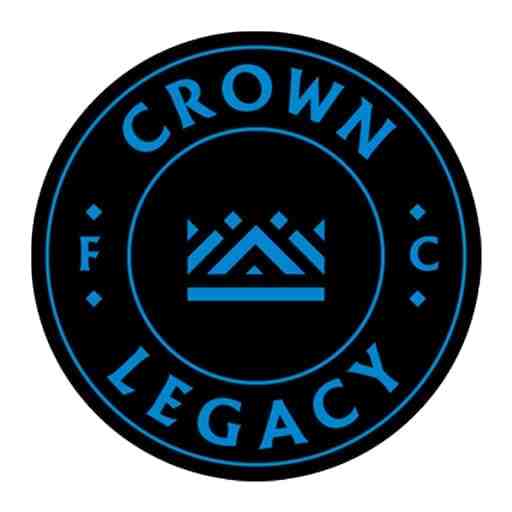What Is The Legacy Of Crown Families? Unveiling The Timeless Influence Of Royalty
Picture this: A world where power, tradition, and history intertwine to shape the course of nations. Crown families, or royal dynasties, have been at the heart of this intricate web for centuries. From their opulent palaces to their enduring influence on global politics, these families have left an indelible mark on human civilization. But what exactly is the legacy of crown families, and why does it still matter today? Let’s dive into this fascinating topic and uncover the secrets behind their timeless impact.
When we talk about crown families, we're not just referring to kings and queens sitting on thrones. We're talking about a legacy that spans generations, cultures, and continents. These families have shaped laws, inspired art, and even influenced the way we view leadership and governance. Their stories are filled with triumphs, tragedies, and everything in between.
So, why should you care about the legacy of crown families in 2023? Because their influence extends far beyond the pages of history books. From modern-day constitutional monarchies to the cultural impact of royal weddings, the crown families continue to captivate our imagination. Let’s explore this legacy together and see how it affects us today.
Read also:Mastering Remote Iot Monitoring With Ssh
Table of Contents
- Introduction to Crown Families
- Historical Significance of Crown Families
- Biography of Famous Royals
- Economic Impact of Crown Families
- Cultural Influence on Society
- Modern-Day Monarchies
- Challenges Facing Royalty Today
- Role in Politics and Governance
- Legacy in Pop Culture
- Future of Crown Families
Introduction to Crown Families: Who Are They?
Crown families, also known as royal families, are the embodiment of tradition, power, and privilege. These families have ruled over vast empires, shaped nations, and influenced global events. But what exactly makes a family "royal"? Well, it’s all about lineage. Most crown families trace their roots back to ancient times, where they were considered descendants of gods or chosen by divine intervention.
Take a look at some of the most famous crown families in history. The British Royal Family, for instance, has been around since the Norman Conquest in 1066. The House of Windsor, as it’s known today, continues to captivate audiences worldwide. Similarly, the Swedish Royal Family and the Japanese Imperial Family have their own unique stories of survival and adaptation.
But here’s the kicker: not all crown families are created equal. Some have thrived through the ages, while others have fallen victim to revolutions, wars, and political upheavals. So, what sets the successful ones apart? Let’s find out.
The Historical Significance of Crown Families
Throughout history, crown families have played a pivotal role in shaping the world as we know it. They’ve been involved in everything from wars and treaties to art and science. For example, the Medici family of Florence wasn’t technically a crown family, but their influence on the Renaissance was immense. They funded artists like Michelangelo and Leonardo da Vinci, leaving a lasting legacy in the world of art.
Then there’s the Romanov dynasty in Russia, whose tragic fall marked the end of centuries of monarchy. The execution of Tsar Nicholas II and his family in 1918 sent shockwaves around the world. It was a stark reminder of the fragility of power and the dangers of losing touch with the people.
But not all stories end in tragedy. The British Royal Family, for instance, has managed to adapt to changing times. From Queen Victoria’s reign during the Industrial Revolution to Queen Elizabeth II’s modern-day leadership, the family has shown remarkable resilience. Their ability to evolve while maintaining tradition is a testament to their enduring legacy.
Read also:Secure Remote Access With Remoteiot Ssh A Comprehensive Guide
Key Historical Events Shaping Crown Families
- The Norman Conquest (1066): William the Conqueror’s victory laid the foundation for the British monarchy.
- The French Revolution (1789): The fall of the Bourbon dynasty marked the end of absolute monarchy in France.
- The Russian Revolution (1917): The Romanov dynasty’s collapse changed the course of Russian history.
Biography of Famous Royals: Who Are the Icons?
Let’s take a moment to highlight some of the most iconic royals in history. These individuals have left an indelible mark on their respective nations and beyond. Here’s a quick rundown:
Queen Elizabeth II: The longest-serving monarch in British history, Queen Elizabeth II reigned for over 70 years. Her dedication to duty and service made her a beloved figure worldwide.
Napoleon Bonaparte: Although not a traditional crown family member, Napoleon’s rise to power as Emperor of France reshaped Europe. His legacy lives on through the Napoleonic Code, which influenced legal systems globally.
Queen Victoria: Known for her long reign and the Victorian era, Queen Victoria’s influence extended far beyond the UK. Her empire was truly global, covering a quarter of the world’s landmass at its peak.
| Name | Country | Reign | Legacy |
|---|---|---|---|
| Queen Elizabeth II | United Kingdom | 1952–2022 | Modernized monarchy |
| Napoleon Bonaparte | France | 1804–1815 | Napoleonic Code |
| Queen Victoria | United Kingdom | 1837–1901 | Victorian Empire |
The Economic Impact of Crown Families
When it comes to economics, crown families have had a significant impact. Their wealth and influence have driven trade, commerce, and industry for centuries. For example, the British Empire’s control of India’s spice trade was a major contributor to its economic success. Similarly, the Spanish crown’s discovery of gold and silver in the Americas fueled Europe’s economy during the Age of Exploration.
In modern times, crown families continue to contribute to their nations’ economies. The British Royal Family, for instance, generates billions of pounds annually through tourism. People from all over the world flock to London to see Buckingham Palace, the Tower of London, and other royal landmarks. It’s a testament to the enduring appeal of royalty.
Top Economic Contributions by Crown Families
- Tourism: Royal palaces and events attract millions of visitors each year.
- Philanthropy: Many crown families are heavily involved in charitable work, contributing to social causes.
- Investment: Royal families often invest in businesses and industries, driving economic growth.
Cultural Influence on Society
Culture and crown families go hand in hand. From fashion to music, these families have set trends and inspired countless artists. Think about it: the wedding of Prince William and Kate Middleton was watched by billions worldwide. It wasn’t just a royal event; it was a cultural phenomenon.
But the influence doesn’t stop there. Crown families have also been patrons of the arts, funding everything from operas to paintings. The Medici family, as mentioned earlier, played a crucial role in the Renaissance. Their support of artists like Michelangelo and Leonardo da Vinci changed the course of art history.
Today, crown families continue to inspire. The Duchess of Sussex, Meghan Markle, has used her platform to advocate for gender equality and social justice. Her work has resonated with millions, proving that royals can still make a difference in the modern world.
Modern-Day Monarchies: What’s Changed?
In today’s world, monarchies have adapted to changing times. Most are now constitutional monarchies, where the monarch’s role is largely ceremonial. This shift has allowed them to remain relevant in a democratic world. For example, the Swedish Royal Family focuses on sustainability and environmental issues, aligning with modern values.
But not all monarchies have thrived. Some have faced criticism for being outdated or irrelevant. The key to survival, it seems, is evolution. Those who can adapt while maintaining tradition are the ones who will continue to thrive.
Modern-Day Monarchies Around the World
- United Kingdom: Constitutional monarchy with a focus on tradition and service.
- Sweden: Emphasizes sustainability and modern values.
- Japan: Maintains a deep connection to tradition and culture.
Challenges Facing Royalty Today
Despite their adaptability, crown families face numerous challenges in the modern world. From scandals to public scrutiny, they must navigate a complex landscape. One of the biggest challenges is staying relevant in a rapidly changing society. With social media and 24-hour news cycles, every move they make is scrutinized.
Another challenge is maintaining public support. In an era of democratic values, some argue that monarchies are outdated. However, many crown families have managed to win over the hearts of their people by focusing on service and charity.
Role in Politics and Governance
Although most crown families no longer wield absolute power, they still play a role in politics and governance. In constitutional monarchies, the monarch acts as a unifying figure, representing the nation on the global stage. They also have ceremonial duties, such as opening parliament and receiving foreign dignitaries.
But their influence extends beyond the ceremonial. Many crown families are involved in diplomacy, using their status to promote peace and cooperation. For example, King Felipe VI of Spain has been a vocal advocate for European unity and cooperation.
Legacy in Pop Culture: From Movies to Music
Crown families have always been a source of fascination for the masses. This fascination has translated into pop culture, with countless movies, TV shows, and songs inspired by their lives. From "The Crown" to "Mary Queen of Scots," these stories captivate audiences worldwide.
Music, too, has been influenced by royalty. Think about Elton John’s tribute to Princess Diana, "Candle in the Wind." It became one of the best-selling singles of all time, proving the enduring appeal of royal stories.
The Future of Crown Families: What Lies Ahead?
As we look to the future, the question remains: what is the future of crown families? Will they continue to thrive, or will they fade into obscurity? The answer lies in their ability to adapt. Those who can evolve while maintaining tradition will likely survive.
One thing is certain: the legacy of crown families will continue to shape our world. Whether through politics, culture, or economics, their influence is undeniable. As long as they remain relevant and connected to the people, they will continue to captivate and inspire.
Final Thoughts
In conclusion, the legacy of crown families is a complex and fascinating topic. From their historical significance to their modern-day influence, these families have left an indelible mark on human civilization. As we’ve seen, their ability to adapt and evolve is key to their survival.
So, what can you do? If you’ve enjoyed this article, why not share it with your friends? Or leave a comment below and let us know your thoughts on the legacy of crown families. Together, we can keep the conversation going and explore this timeless topic further.


